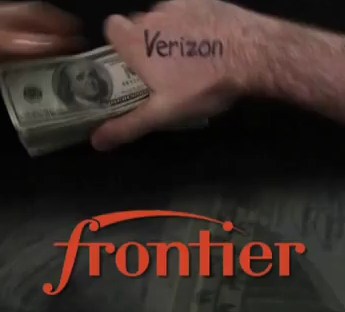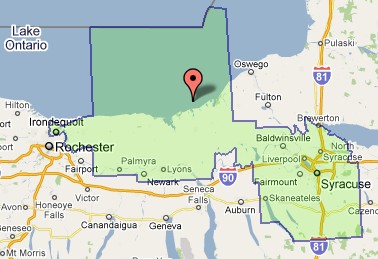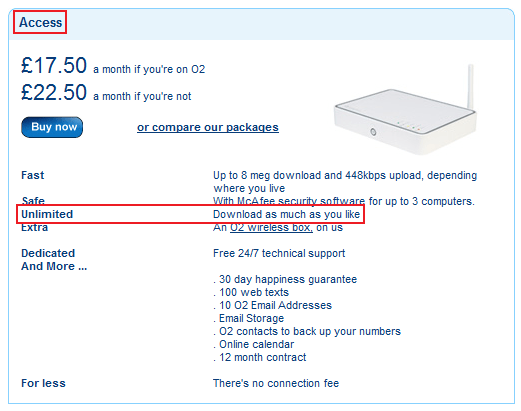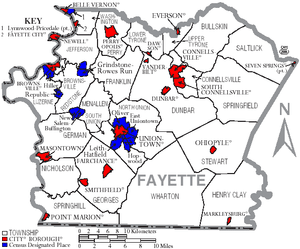The Federal Communications Commission’s approval of Frontier’s takeover of 4.8 million Verizon landline customers in 14 states comes a year after the company announced the deal. Frontier joins three other independent phone companies — FairPoint Communications, Windstream Communications, and CenturyLink zealously trying to grow their companies with additional mergers and acquisitions to avoid being swallowed up themselves.
What is common among all four companies is they rely heavily on dividend payouts to keep their stock price as high as possible. That was a formula for disaster for FairPoint, the first of the four to end up in bankruptcy after a similar deal with Verizon in northern New England caused the company to falter. Service and billing deteriorated, customers fled, and promises for better broadband were broken. Now Frontier is following in FairPoint’s footsteps with more than 4.8 million new customers Frontier hopes they can swallow.
The FCC’s statement approving the merger reads like a press release for all involved, and delighted FCC Chairman Genachowski, who called these meager requirements “robust”:
Coming one week after the final state approval for the transaction, the FCC’s Order holds the applicants, Verizon and Frontier, to enforceable voluntary commitments, including:
- Extend faster broadband to more Americans: Frontier will significantly increase broadband deployment for the lines involved in this transaction, only 62 percent of which are broadband-capable today. Specifically, Frontier will deploy broadband with actual speeds of at least 3 Mbps downstream to at least 85 percent of transferred lines by the end of 2013, and actual speeds of at least 4 Mbps downstream to at least 85 percent of the transferred lines by the end of 2015, with all new broadband deployment offering actual speeds of at least 1 Mbps upstream.
Frontier’s broadband commitment gives the company a full five years to meet the bare minimum speed considered to constitute broadband in the National Broadband Plan. One hopes Frontier doesn’t break into a sweat offering a piddly 3 Mbps service to homes using yesterday’s DSL service until then. While Verizon’s rural castoffs get stuck eventually with 4 Mbps DSL, many of the company’s remaining customers are enjoying 50Mbps service over an all fiber network. The FCC is accepting an urban-rural divide for broadband which will benefit the phone companies while leaving rural customers in the dirt.
- Deploy fiber to libraries, hospitals, and other anchor institutions: Frontier will launch an anchor institution initiative to deploy fiber to libraries, hospitals, and government buildings, particularly in unserved and underserved communities.
Fiber for these locations sure, but no fiber for you or I. Frontier, like most other telecom companies, loves to promote the benefits of fiber without actually deploying it to homes.
- Promote competition: Frontier and Verizon have made a series of commitments to protect wholesale customers, including honoring all obligations under Verizon’s current wholesale arrangements that are in effect at closing.
Since wholesale customers often depend on the same network other customers do, if a company doesn’t deliver robust broadband into a state like West Virginia, there isn’t a robust service to sell to those wholesalers.
- Improve data quality and collection: Frontier will make available to the Commission data on its broadband deployment progress at an unprecedented level of detail to enable effective monitoring of Frontier’s compliance with its commitments.
The Commission concluded that the commitments that applicants have offered, coupled with monitoring and enforcement by the Commission, will minimize the risks of harm and ensure that this transaction is in the public interest.
Considering how weakly the FCC is committing itself to protecting rural customers from being dumped into the broadband backwater Frontier has on offer (complete with the 5GB monthly usage allowance), does collecting statistics help when things go sour? Regulators collected statistics in New England when FairPoint failed, but that didn’t get service levels back until Maine, New Hampshire, and Vermont threatened to toss FairPoint out. Now the company is in bankruptcy and regulators are negotiating which of the promises FairPoint made can be let go ‘for the sake of the company.’
That’s why it’s so ironic to read editorials that proclaim the FCC is on some sort of power grab when they seek to restore what meager authority they exercised over broadband before a DC Court effectively excluded broadband oversight from their portfolio.
It will be a good day when federal agencies like the FCC start worrying first and foremost about consumers instead of how to make a parade of overpriced mergers and acquisitions succeed for the companies involved.
[flv width=”480″ height=”380″]http://www.phillipdampier.com/video/WANE Ft Wayne Verizon hanging up on local landlines 5-24-10.flv[/flv]
WANE-TV in Fort Wayne warns viewers their landline company is about to change asVerizon vacates the area by July 1st. (1 minute)
[flv width=”480″ height=”380″]http://www.phillipdampier.com/video/CWA Verizon Dont Take the Money and Run in WV.flv[/flv]
Too late. The Communications Workers of America ran this ad spot asking the West Virginia governor to intervene and stop the sale. (1 minute)


 Subscribe
Subscribe
















